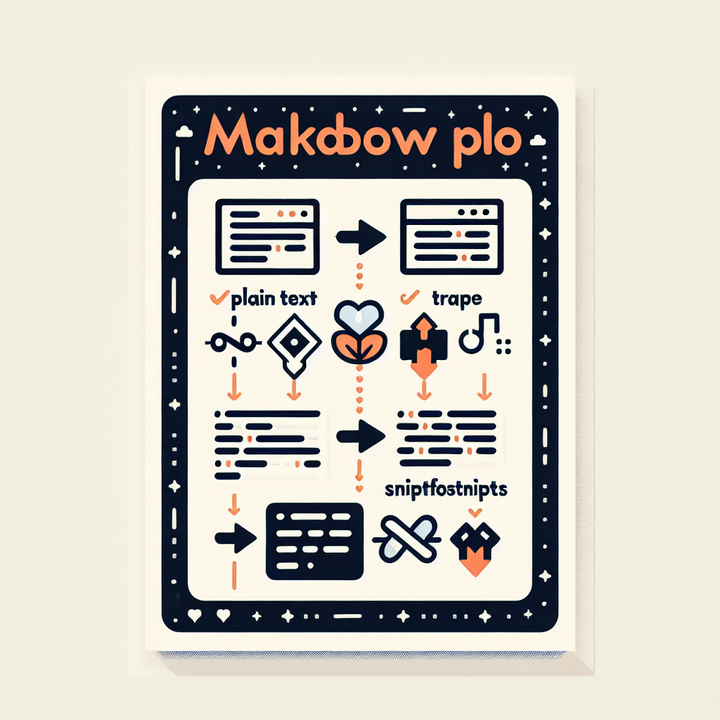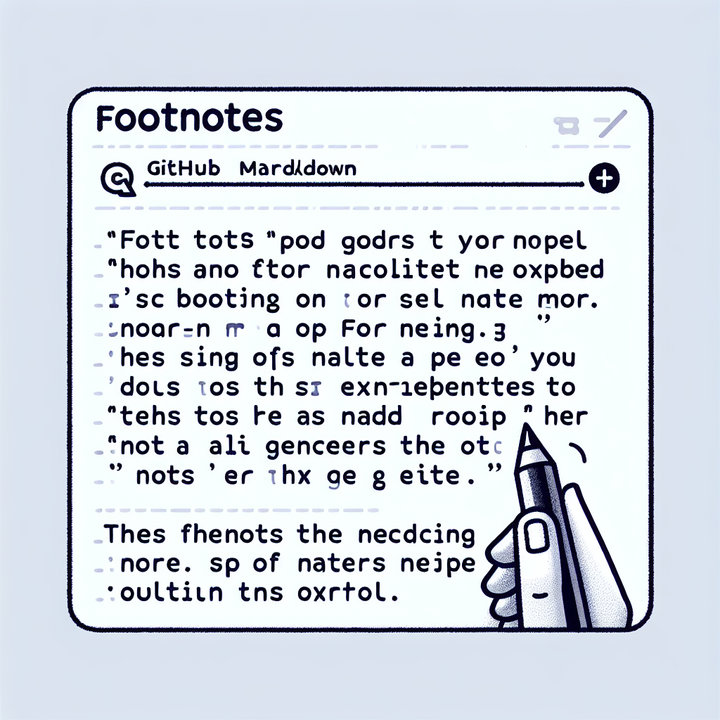Mastering Variables in Markdown: Enhancing Content Creation Flexibility
Markdown variables improve content consistency and maintainability by reusing data, suitable for large docs and dynamic content. They use external scripts for variable management, enhancing Markdown's flexibility.

"Why struggle with Markdown formatting? Our free tools make it easy to create beautiful, professional-looking documents in seconds."
In the realm of digital content creation, Markdown has become a preferred tool for many writers due to its concise syntax and powerful functionality. However, as content demands grow increasingly complex, traditional Markdown syntax may no longer fully meet certain advanced needs. This is where the concept of "Markdown variables" comes into play, significantly enhancing the flexibility and efficiency of content creation. This article will delve into the concept of Markdown variables, their application scenarios, and how to effectively use them.
What are Markdown Variables?
Markdown variables, as the name suggests, are variables that can be used within a Markdown document. These variables can be reused in different parts of the document, avoiding repetitive input of content, and improving the maintainability and consistency of the document. Variables typically consist of a name and a value, which can be referenced in the document using specific syntax.
Application Scenarios of Markdown Variables
1. Document Consistency Maintenance
When writing large documents or series of articles, it is common to need to use the same information in multiple places, such as author names, company names, or specific links. Using Markdown variables ensures that this information remains consistent throughout the document. Once an update is needed, you only need to modify the variable's value, and all places referencing that variable will automatically update.
2. Dynamic Content Generation
In some cases, we may want to generate different content based on different conditions. For example, displaying different greetings based on the user's geographical location, or showing different promotional information based on the current date. By using Markdown variables in conjunction with backend scripts or preprocessors, dynamic content generation can be achieved.
3. Simplifying Complex Expressions
In technical documentation, it is often necessary to reference complex formulas or code snippets. Using Markdown variables to encapsulate these complex expressions makes the document clearer and easier to read, and also facilitates subsequent modifications and maintenance.
How to Use Markdown Variables?
1. Defining Variables
Defining variables in a Markdown document typically requires the use of external tools or scripts. For example, you can use a Python script to read a configuration file and then insert the variable values into the Markdown document.
# config.py
variables = {
"author": "John Doe",
"company": "Tech Corp",
"website": "https://techcorp.com"
}
2. Referencing Variables
When referencing variables in a Markdown document, you can use specific placeholders, which are then replaced with the actual variable values during the preprocessing stage.
# About Us
Author: {{author}}
Company: {{company}}
Website: {{website}}
3. Preprocessing the Document
Using a Python script or other preprocessing tools, you can replace the placeholders in the Markdown document with the actual variable values.
# preprocess.py
import config
with open('document.md', 'r') as file:
content = file.read()
for key, value in config.variables.items():
content = content.replace(f'{{{{{key}}}}}', value)
with open('processed_document.md', 'w') as file:
file.write(content)
Conclusion
Markdown variables provide content creators with a powerful tool that can significantly enhance document consistency, maintainability, and flexibility. By effectively utilizing variables, we can achieve more complex and dynamic content creation while maintaining the simplicity of Markdown. Whether writing technical documentation, blog posts, or business reports, Markdown variables can be a valuable asset to your content creation efforts.



Comments ()